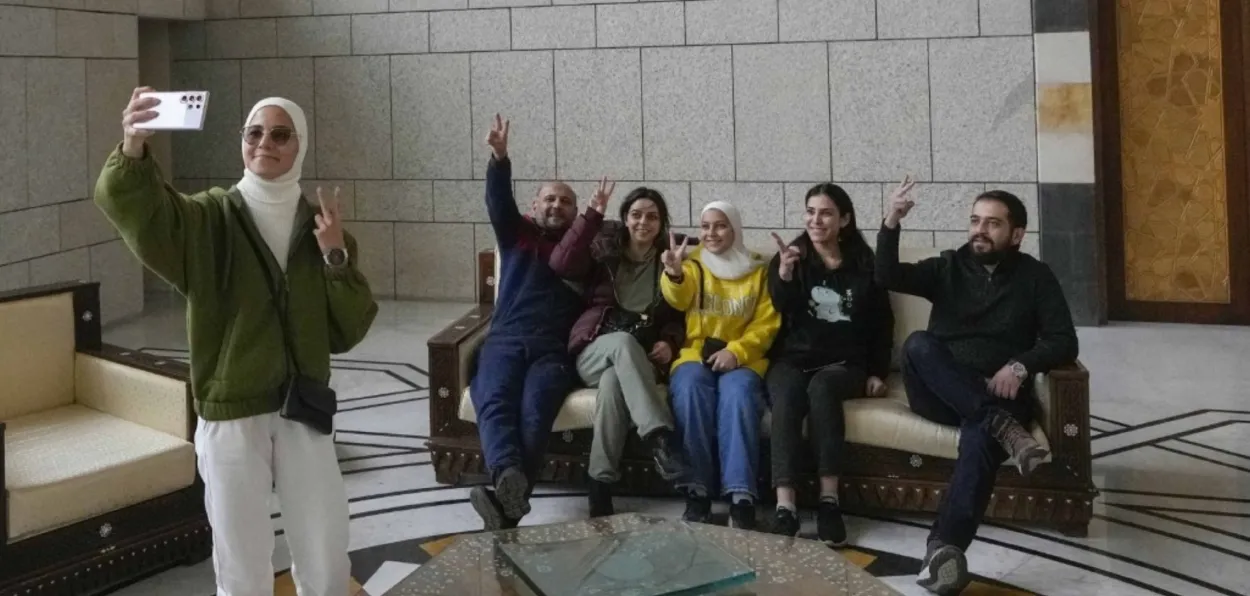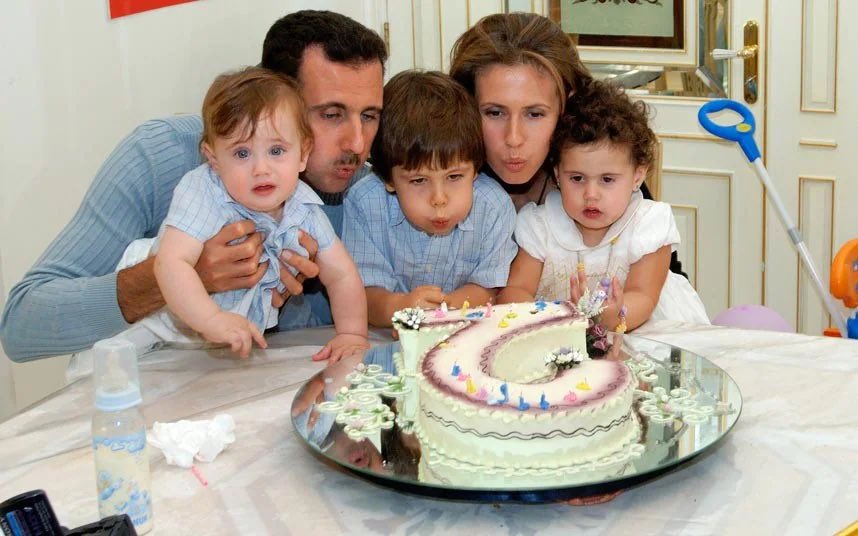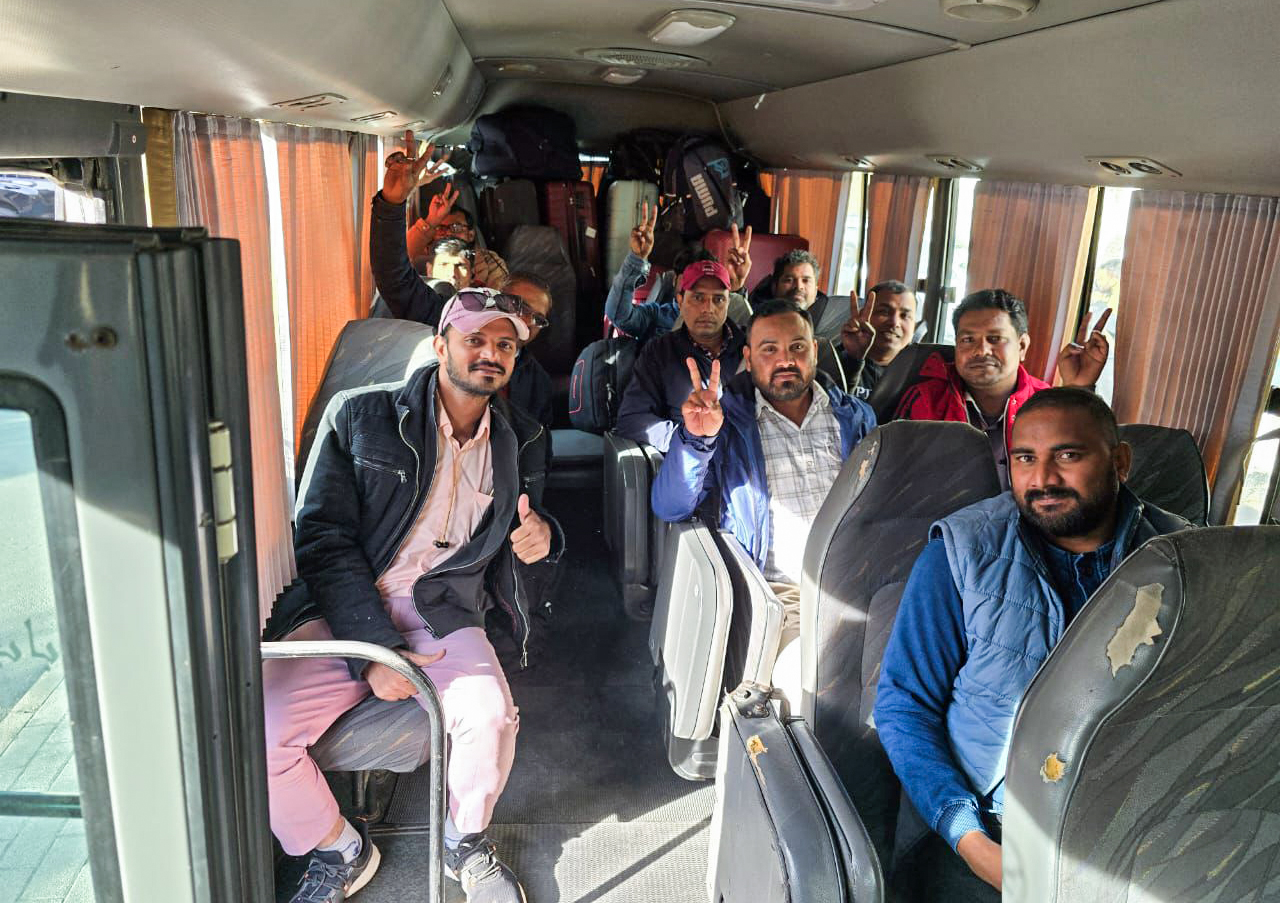
Aditi Bhaduri
The overthrow of the Bashar Al Assad government in Syria and the fall of Damascus to rebel groups have stunned the world. Ominously, it has reversed years of counter-terror operations and the world may well be staring at another wave of radicalism and terror. The rebel group that led the onslaught on government forces was a former Al Qaeda affiliate known as the Jabhat Al Nusra or the Al Nusra Front, which was Al Qaeda’s official branch in Syria.
Since 2016, it has been morphing into the Hayat Tahrir AL Sham (HTS) with Abu Mohammad Al Jolani head. Al Jolani was a former Al Qaeda member who has served time in US custody in Iraq. He is in charge in Damascus now. After 12 years of civil war in which millions were killed has ultimately resulted in the overthrow of the Assad regime. Iran and Russia, who helped Assad retake more than 70 percent of the Syrian territory from the rebels, mainly the Islamic State, seem to be too depleted to intervene.
Conspiracy theories abound: it was Israel that activated the rebels to deal Iran a decisive blow, having almost disabled Hamas in Gaza and Hezbollah in Lebanon. Turkey took advantage of Russian preoccupation with Syria and Iran's weakened position after the war with Israel to green-light the rebel offensive to further its geopolitical goals in the region.
And for some, it is the final gift of the departing Joe Biden administration to President-elect Donald Trump. Assad had squandered away all the military gains; he had angered Iran and was trying to mingle with Arab friends whom he had recently reconciled with.

Deposed President Bashar al-Assad with his wife and children
Whatever the truth the timing was most suitable. Both of Assad's allies - Russia and Iran - were unable to intervene. Russia was preoccupied with Ukraine. Iran is too weak and facing both internal and external challenges. Its protégé - Hezbollah in Lebanon –is in disarray after the war with Israel. Also, events happened simply too fast. The opposition launched a blitzkrieg from Idlib, northwest Syria, a region they had been holding onto since the beginning of the civil war in 2012.
Within two weeks they took over all major towns and cities, including Damascus. Russia later confirmed that it had exhilarated Assad and his family. At the historic Ummayad Mosque in Damascus, Al Jolani announced the takeover of the capital as a "victory for Islam". Jubilation and celebrations in Damascus followed. Overnight even those who had been batting for Assad began cheering for the rebels and a "new Syria" over social media.
It is a peculiarity of the region that the opposition to totalitarian regimes comprises religious radicals. It was witnessed in Tunisia, where the Arab Spring began, in Egypt, and now in Syria. Yet Syrian society with its high literacy was progressive. The Assad dynasty - first the father Hafez Al Assad and then his son Bashar had ruled with an iron fist. Bashar Assad even has the ignominy of using chemical weapons against his people. But their 50 years of Ba'athist rule, and being close to the erstwhile USSR and later Russia, had kept Syria with its many minorities a secular and plural society.
Hafez Al Assad ruthlessly crushed a rebellion by the Muslim Brotherhood in Hama province in the 1980s. Despite the country’s closeness to Iran, it did not import Iran's theocracy or religious conservatism. Syria was also at the forefront of pan-Arabism, and when other Arab states made peace and established relations with Israel, Syria held out, insisting that Israel first return it the occupied Golan Heights.
The country’s takeover by radicals, many of whom were affiliated with Al Qaeda and ISIS, and whose objective till some time ago was the establishment of a caliphate and Islamic State in Syria. How far that will be achieved remains to be seen.
 Indians being evacuated from Syria
Indians being evacuated from Syria
The first signs are already there - Al Jolani making his first address from the historic mosque, just like Abu Bakr Al Baghdadi, the self-proclaimed Caliph of ISIS did in 2014 (he made his first address announcing the establishment of a Caliphate, from the Mosque in Mosul). Jolani also claimed their seizure of Damascus as a victory for "Islam" and not for "Syria ".
Eyewitness reports say that non-Christian women living in towns and cities who are not used to covering their heads are passing themselves off as Christians. So far the Christians have been exempted from covering their heads, an Islamic practice followed in hardliner societies.
The fall of Damascus is a huge victory for radical and Islamist forces. It is a victory also for Turkey and Qatar, both supporters of many of the rebel groups and the ideology of the Muslim Brotherhood. While other Gulf States like Saudi Arabia and UAE had also initially supported different rebel factions at the start of the Syrian civil war they soon had a rethink.
The Gulf monarchies are primarily concerned with regime survival, and, flowing with the winds of change, they have been modernizing their societies, developing the non-oil sectors of the economy to prepare for the post-oil future, promoting religious tolerance, and pluralism. The Muslim Brotherhood and its ideology of political Islam is a direct threat to them. When ISIS mounted attacks on them, as did the Iran-backed Houthis, they began a reconciliation process with Assad. They had also helped crush ISIS in Syria.
Syrian rebels entering Damascus
That has now badly come undone. The Gulf States were already spooked when the Taliban took charge in Kabul in August 2021. Angry editorials condemned political Islam; one such editorial even pointed an accusing finger at the "Indian subcontinent" for the emergence of political Islam, in an oblique reference to the Deobandi ideology. None of them have yet recognised the Taliban. The only exception was Qatar, which had not only allowed the Taliban to relocate to Qatar but also facilitated the negotiations between the group and the then-Donald Trump administration, which paved the former's way to Kabul.
In this context, it may be recalled that in 2017 Saudi Arabia, the UAE, Bahrain, and Egypt had severed ties with Qatar. Also, all of them had strained relations with Turkey. These countries reacted to Turkey and Qatar supporting Muslim Brotherhood-affiliated groups in the region and the Arab Spring.
While many see the current events in Syria as geopolitical defeats for both Russia and Iran, states that stand to gain are Israel and Turkey.
 Syrian rebels burning grave of a member of Royal family
Syrian rebels burning grave of a member of Royal family
Israel has already occupied part of the demilitarized buffer zone on the Syrian side of the Golan Heights to prevent, as it explained, the spillover of any chaos into its territory. Israeli Air Force and Navy have struck Syrian missile depots, naval vessels, and fighter jets to ensure they don’t fall into the wrong hands.
Turkey has long been aiding the rebels, including the HTS, and will continue to use them as leverage. It is widely believed that the current rebel offensive would not have been possible without tacit Turkish approval.
The Joe Biden administration has been bombing ISIS strongholds and monitoring Syrian weapons depots, while President-elect Donald Trump has already announced that it is not America's war.
Such development will also allow Qatar which was on the back foot for its support for Hamas, to spread its influence in the region.
ALSO READ: Syria regime change shifts focus from Gaza, Ukraine conflicts
All of this is sure to cause another round of headaches for the other Gulf countries, as also for India.
